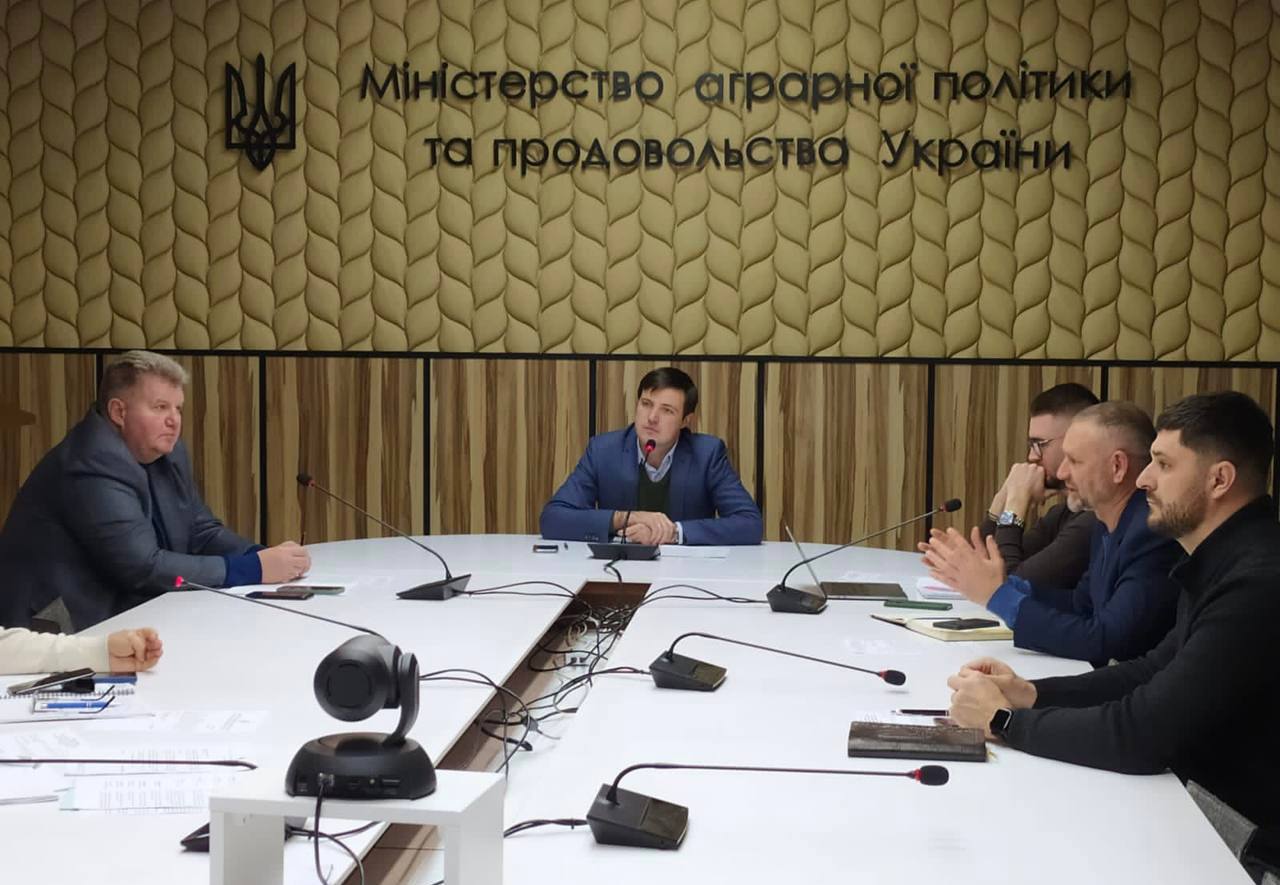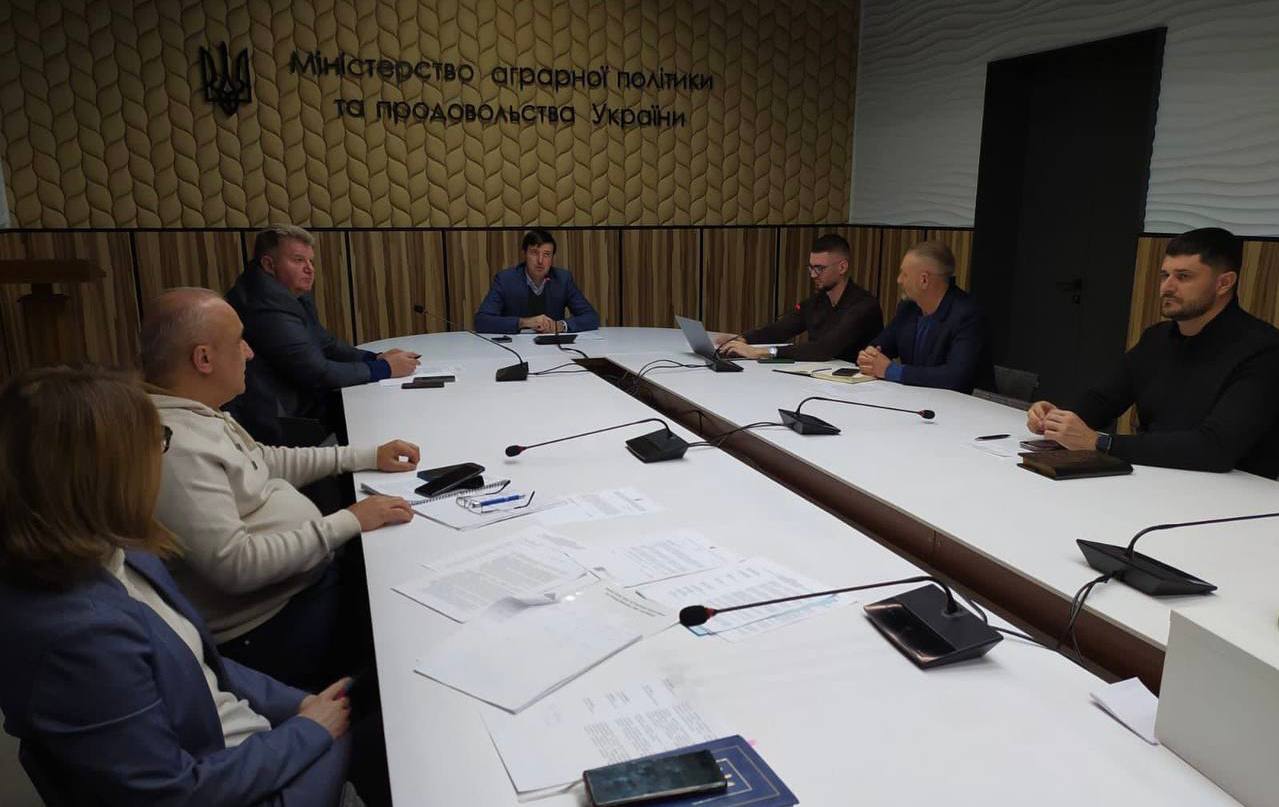
On December 5, the first meeting of the interagency working group on solving the problems of agricultural producers operating in the de-occupied territories, formed by the Ministry of Agrarian Policy following the hearings of the Agrarian Committee of the Verkhovna Rada, was held.
The group included representatives of the Committee on Agrarian and Land Policy, the Ministry of Agrarian Policy and Food of Ukraine, the Ministry of Community Development, Territories and Infrastructure of Ukraine, the Ministry of Economy of Ukraine, the Ministry for Reintegration of the Temporarily Occupied Territories of Ukraine, the National Bank of Ukraine, and industry representatives.
Experts from the Ukrainian Agri Council, which is implementing the project "Supporting agricultural MSMEs affected by active hostilities or Russian’s temporary occupation" with the support of the USAID AGRO Program, also joined the interagency group and submitted a number of proposals for consideration, including: resolving the problem of bank claims for loans from debtors affected by military operations; the impossibility of concluding standstill agreements with debtors trying to restore their businesses; introducing preferential lending; others.
As a result of the meeting, two proposals of the UAC experts were fully agreed by the working group members, namely:
1. To make amendments to the definition of the high military risk zone for the purposes of preferential lending 5-7-9, in order to continue preferential lending to the affected territories
On September 22, 2023, a new type of state support was added to the 5-7-9 preferential lending program - preferential lending to enterprises located in the high military risk zone.
The current version of the CMU Resolution No. 28 as of January 24, 2020 stipulates that the high-risk military risk zone includes territories where hostilities are currently possible, as well as territories where active hostilities or occupation have ended, provided that less than one calendar year has passed since the end of hostilities/occupation in such territories.
For the de-occupied territories, such a support program was actually in place only in October of this year and has been almost completed since November, as the last significant de-occupation of the territories (Kherson region) took place in early November 2022, meaning that more than a year has passed since the de-occupation and Kharkiv, Kherson and other de-occupied regions have lost their status as a high-risk military zone.
To resolve this issue, it is necessary to make amendments to the definition of a high military risk zone to increase the maximum period during which the territory remains in a high military risk zone after de-occupation from the current one year to at least two years.
2. Enable farmers registered in the territories of active hostilities and conducting business in other controlled territories of Ukraine to receive preferential loans under the 5-7-9 program
Business entities that are registered in the territories of active hostilities but actually conduct business in another controlled territory of Ukraine are not eligible for state support under the 5-7-9 program.
This rule is unfair, as it forces business entities to re-register from the government-controlled territory of Ukraine where active hostilities are taking place, even if their actual business activities are carried out in a safer area. This leads to additional expenses for re-registration and losses for local budgets in the areas of active hostilities.

To solve this problem, it is proposed to amend paragraph 17 of CMU Resolution No. 28 as of January 24, 2020, establishing that business entities that conduct business in the territories of active hostilities and the temporarily occupied territory, as well as business enterprises registered in the temporarily occupied territory, are not eligible for state support. Thus, business enterprises will not be deprived of the opportunity to receive preferential lending only because they are registered in the territories of active hostilities (for example, in the Kherson city).
As a result of the meeting, it was agreed that the Ministry of Agrarian Policy would submit the relevant proposals to the Cabinet of Ministers of Ukraine in the format of amendments to Resolution No. 28 as of January 24, 2020. Other expert proposals will be considered at the next meeting of the working group.
We are grateful to the Committee on Agrarian and Land Policy, the Ministry of Agrarian and Food Policy of Ukraine, and representatives of the National Bank for their constructive position and willingness to hear and solve the problems of the agricultural business of the de-occupied territories.
As a reminder, the UAC, with the support of the USAID Agriculture Growing Rural Opportunities Activity (AGRO), is implementing a joint project to provide legal and other expert support to agricultural producers affected by hostilities or temporary occupation by the Russian Federation.
Thanks to the project, affected agricultural producers will receive individualized advice on land, agrarian, tax legislation, etc. For prompt legal support, please contact the hotline at 067 503 19 08.
Wednesday, 6 December 2023